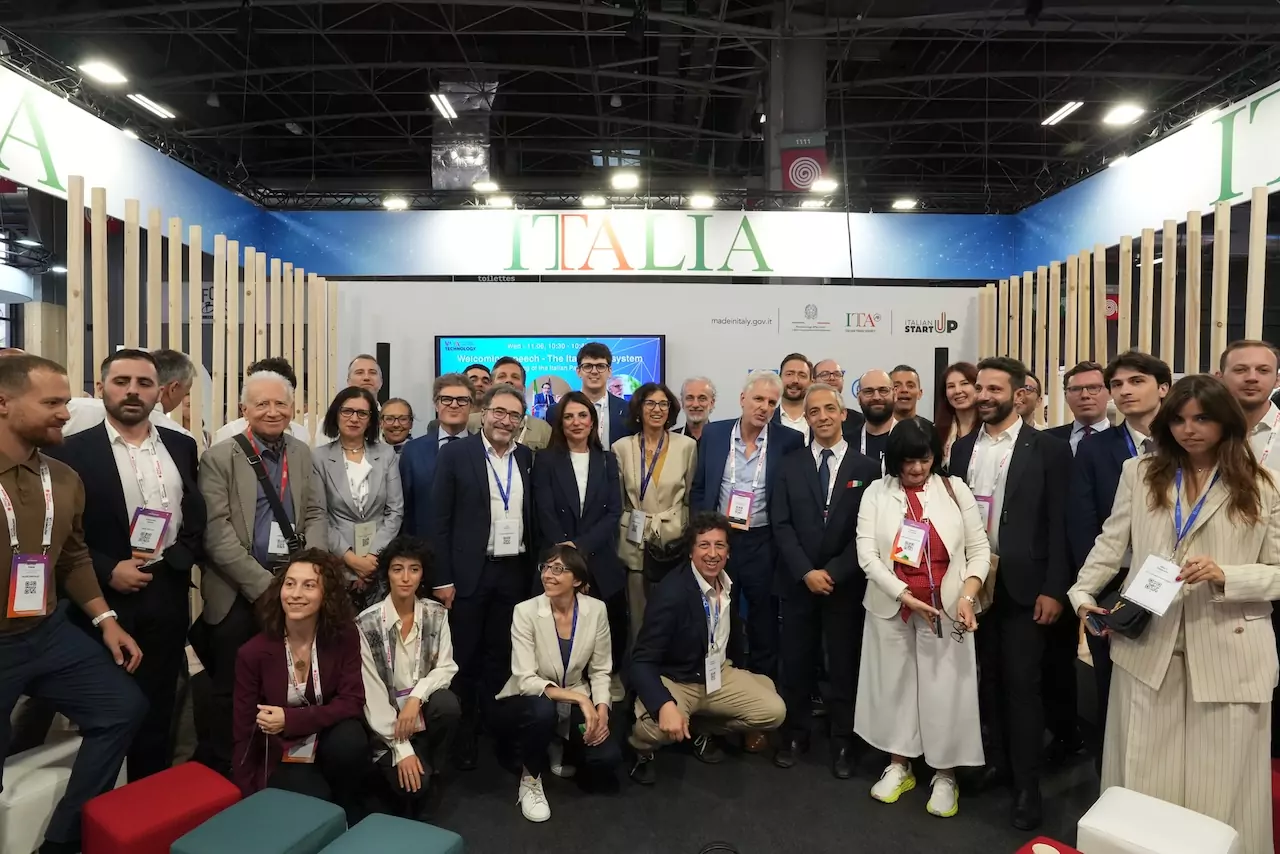In Paris, amidst close encounters with humanoid robots, strategic industrial agreements and a heated discussion on the future of artificial intelligence, the ninth edition of VivaTech. The event, held from 11 to 14 June 2025, welcomed more than 180 thousand visitors from 160 countries, 14 thousand start-ups and 3,600 investors and confirmed itself as one of the most relevant global events for those looking at innovation as a geopolitical, industrial and cultural lever. At the centre of the debate were artificial intelligence, technological sustainability and infrastructural sovereignty: themes that found a concrete backing in the announcement of the agreement between NVIDIA and the French company SiPearl to develop AI-ready supercomputers. Underlining its strategic value was Emmanuel Macron himself, who attended the inauguration: the French president reiterated the urgency of a ‘European way to artificial intelligence’, based on open technologies and sovereign infrastructure.
Italy presented itself with a cohesive delegation (pictured), curated by ICE Agenzia and the Ministry of Foreign Affairs, with a vision that united innovative companies, thematic content and territories. Alongside the national pavilion, participation was strengthened by the presence of the Puglia Region, ART-ER Emilia-Romagna, Select Friuli Venezia Giulia and Invest in Italy, outlining a multi-level and widespread approach. During the inauguration, Andrea Domeniconi, Head of the Economic Office of the Italian Embassy in Paris, emphasised Italy’s growing role in the European technology scene, speaking of ‘almost 50 start-ups that will represent Italy at its best’. Also doing the honours Massimo Carnelos, Farnesina’s Innovation Advisor, who pointed out: “What we have brought together are not only start-ups and scale-ups, or promising small and medium-sized enterprises, but above all venture capitalists, key stakeholders in the innovation ecosystem, ecosystem builder, partner, business association e altri attori chiave.” Francesca Zadro, Head of the Startup Unit at ICE, added: ‘We are investing a lot in start-ups but especially in the promotion of Italian technology so we try to take abroad not only what is the traditional image of Italy such as food, fashion, supplies, etc., but also what is the ability to make technology’.
The 48 selected Italian start-ups were divided into five thematic areas. Below is a representative selection for each:
- AI, quantum, blockchain & cloud:
Tiledesk (no-code chatbot), Snapall by TimelapseLab (site monitoring with AI), Letzfair (intelligent events).
- Bluetech, agri & food, energy & climate:
World (platform for engagement and environmental impact monitoring), PlantVoice and Relicta (biodegradable packaging)
- Biotech & health:
Epitomea (reliability analysis of scientific papers using AI), Insimili (cell simulation for oncological research).
- Industry 4.0 & cybersecurity:
Zerynth (industrial AI copilot), Sqrrl (defence operating systems).
- Marketing, retail & mobility:
MLR/WuvDay (digital content certification and authentication), The PAAC (B2B platform for resale and fashion leasing).
Absolute newcomers to the event, Lebanon and El Salvador made their official debut at VivaTech 2025 with structured national delegations, marking an opening towards emerging innovation ecosystems in non-European contexts. Lebanon participated with a delegation of 21 start-ups active in sectors ranging from artificial intelligence for aerospace to predictive medicine, via robotics, decentralised fintech, automated manufacturing, sustainable e-commerce and cybersecurity. “The start-ups we selected are already active in Europe,” said Kim Mouawad, chief growth officer of Beirut Digital District, “We want to make this participation stable and repeatable. The construction of the mission was overseen by SmartESA, in collaboration with Beirut Digital District, Berytech, La French Tech Beirut, Endeavor Lebanon, Zein AUB iPark, the Franco-Lebanese Chamber of Commerce and other partners. The format included thematic panels, B2B networking sessions and vertical presentations, with a strong focus on AI applications in the aerospace, healthcare and industrial sectors. The participation represented a first structural step towards an ongoing presence of Lebanon in the European innovation context.
El Salvador also participated for the first time with a delegation of five start-ups, including Visible, Willdom, and Erde Automation, active in areas such as inclusive design, applied cybersecurity, and remote productivity technologies. Vice Chancellor Adriana Mira called the Salvadoran presence ‘a historic moment for the country’, emphasising that it was the only delegation from Central America.
VivaTech 2025 showed how innovation is not only measured in numbers, but above all in the quality of the strategies deployed. Italy has chosen to present itself with a cohesive ecosystem, capable of integrating companies, content and territories in a single narrative. The structure adopted, based on selection, vision and collaboration, has strengthened the country’s position as a European technological interlocutor. Lebanon’s participation, built through a network of public and private actors, demonstrated that even an initial presence can become a structural lever, if it is based on clear objectives and skills ready for internationalisation. In a context where tech fairs are increasingly turning into geopolitical and industrial platforms, VivaTech confirms itself as a strategic space for those who want to be part of the European design of innovation.
ALL RIGHTS RESERVED ©
